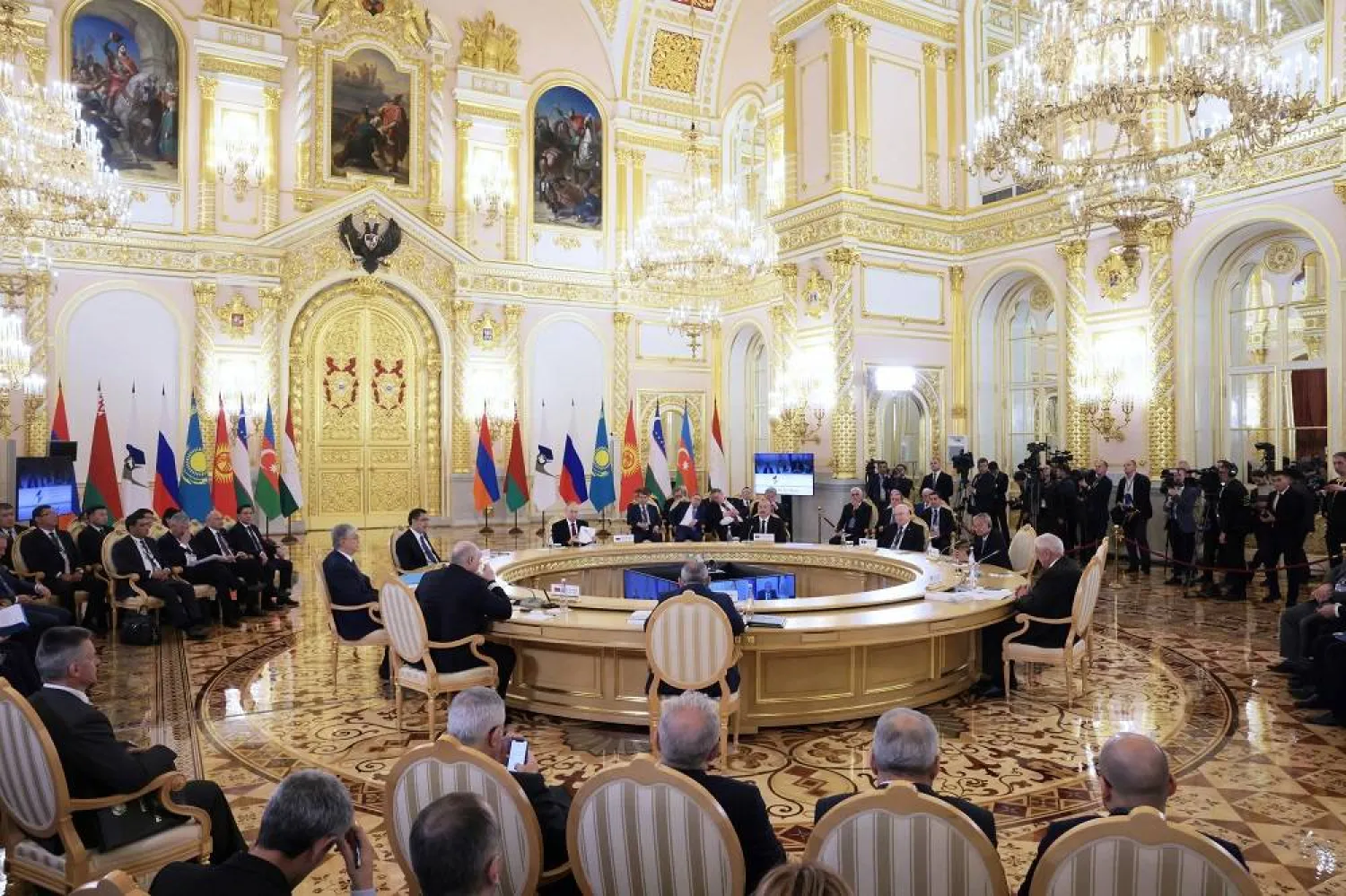The leaders of Azerbaijan and Armenia argued openly in front of Russian President Vladimir Putin on Thursday in exchanges that underlined the extent of their differences over the territory of Nagorno-Karabakh.
At a meeting in Moscow, Armenian Prime Minister Nikol Pashinyan raised the issue of the Lachin corridor, the road which links Armenia to the Armenian-populated enclave of Nagorno-Karabakh inside Azerbaijan.
Azerbaijani activists in mid-December began obstructing the road, which Pashinyan noted should be under the control of Russian peacekeepers, and Baku subsequently erected a checkpoint along it.
"Azerbaijan, unfortunately, has blocked this corridor," Pashinyan said at a roundtable meeting of the Eurasian Economic Council in Moscow.
Azberbaijan's President Ilham Aliyev responded: "Azerbaijan did not block any corridor... There is no need to use this platform for unfounded accusations."
The two leaders continued arguing for several minutes before Putin closed off the conversation, noting that the topic was sensitive. He was due to host three-way talks with Aliyev and Pashinyan later.
"We will now have the opportunity, as we agreed, to talk about everything calmly in a businesslike manner in a trilateral format, and I hope to reach some agreements that will put the situation not only between Armenia and Azerbaijan, but also in the region, on the path of constructive development," Putin said. "I can assure you that everyone here has an interest in this, absolutely everyone."
Armenia and Azerbaijan have been at loggerheads for three decades, fighting two wars over Nagorno-Karabakh. In recent months, both sides have expressed increasing willingness to sign a permanent peace agreement, even as regular skirmishes have continued.
Minutes before the testy exchanges with Pashinyan, Aliyev had said there were "serious grounds for the normalization of relations between Azerbaijan and Armenia on the basis of mutual recognition of territorial integrity and sovereignty".









